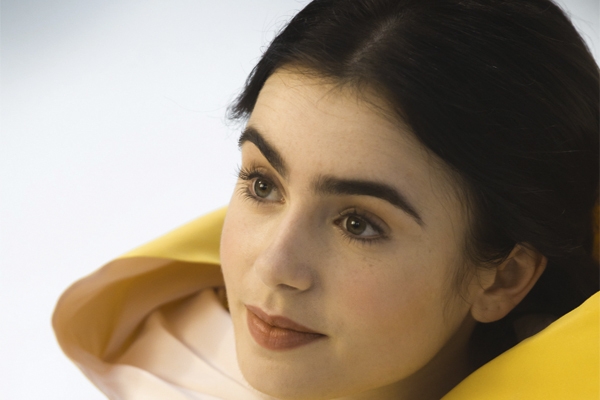I’m not sure that everything wrong with the world can be blamed on Twilight — but most of it can. Ever since those oh-so-dreamy vampire stories first set hearts a-fluttering and cash registers a-ringing, Hollywood has been looking out for other fantasy yarns to strip down and hawk to 13-year-old girls. And now it has alighted on fairy tales. Last year we had a film of Red Riding Hood (from the director of Twilight). This year we have Snow White and the Huntsman (with one of the stars of Twilight). And there are also adaptations of Beauty and the Beast and Sleeping Beauty on the way (and if they don’t overlap with Twilight somehow, what’s the point?).
Then there is this: Mirror Mirror, another version of the Snow White tale. ‘The Snow White legend comes alive’ is how the posters describe it, by which they mean added jokes, extra sword fights and a hundred other embellishments to pad out the running time to 106 minutes. What they don’t tell you, of course, is just how dreadful it is.
Most of what you need to know about Mirror Mirror comes in the first five minutes. Julia Roberts’s evil Queen narrates an animated version of the back story, inserting terminally unfunny asides as she goes along, before the film switches to live action with a sweeping shot across a lake towards a palace, where Snow White is framed by a gilded window, at which point some sort of bee-eater flutters in to wish her a Happy Birthday, or something. It is already far too much. I think we’re meant to marvel at the magic of it all, but it’s about as marvellous as drowning in a sea of ice cream.
Yet still the raspberry ripple is shoved up our nostrils. The point of this film — which is, I think, to make Snow White a more independent kind of woman — is overwhelmed by its self-indulgence. For instance, the Queen doesn’t just consult her magic mirror; she steps through it, rising out of oily waters into a weird netherworld, where she enters a shack before finally consulting the actual mirror. And this is shown multiple times, leaving little room for actual story. No wonder some of the character development is a bit sparse. Snow White herself goes from being trepidatious about stepping outside the palace to arranging a military coup in 30 seconds flat.
There is little wrong with these revamped fairy tales in theory. The original stories are strong enough to bear being updated for modernity’s sake. But the problem with Mirror Mirror is that it forgets why those originals worked in the first place. Whereas they were simple stories told well, this is a silly story told badly. It is so eager to set aside the old clichés that it plunges headfirst into newer ones, as when the Prince Charming character quips that ‘it thrills me no end that my travelling companion believes in fairy tales’. How arch! How knowing! How obvious! By the time Snow starts a monologue with the line ‘I’ve read so many stories where the prince saves the princess in the end…’ it is already a knackered routine.
All that said, I feel slightly bad for disliking Mirror Mirror so much. Its director, Tarsem Singh, has done much better with stories either solid enough (The Immortals) or weird enough (The Fall) to support his visual sensibilities. And there are some joys to be found here too. Lily Collins is amazingly likable as Snow White. Armie Hammer puts in a sporting shift as the Prince.
Besides, Mirror Mirror has the most delicious ending that I’ve seen for a while, although it doesn’t nearly redeem the film as a whole. The wicked Queen, now reduced to a hunched old woman, turns up at the wedding of Snow White and the Prince bearing — yes — a poisoned apple. Snow spots the deception, cuts a slice from the apple, and offers it back to the Queen on the end of her knife. ‘It’s important to know when you’ve been beaten,’ she says, her features rearranging themselves into a pretty smirk. The apple hovers between the two of them.
Is it just me, or is Snow urging her former tormenter to eat the apple and basically kill herself? It would certainly match the morbid ending of the Brothers Grimm tale, which has the old Queen dancing herself to death in hot irons. Come to think of it, it suggests a ‘reimagining’ that might actually be worth seeing: Snow White, Queen Bitch.






Comments